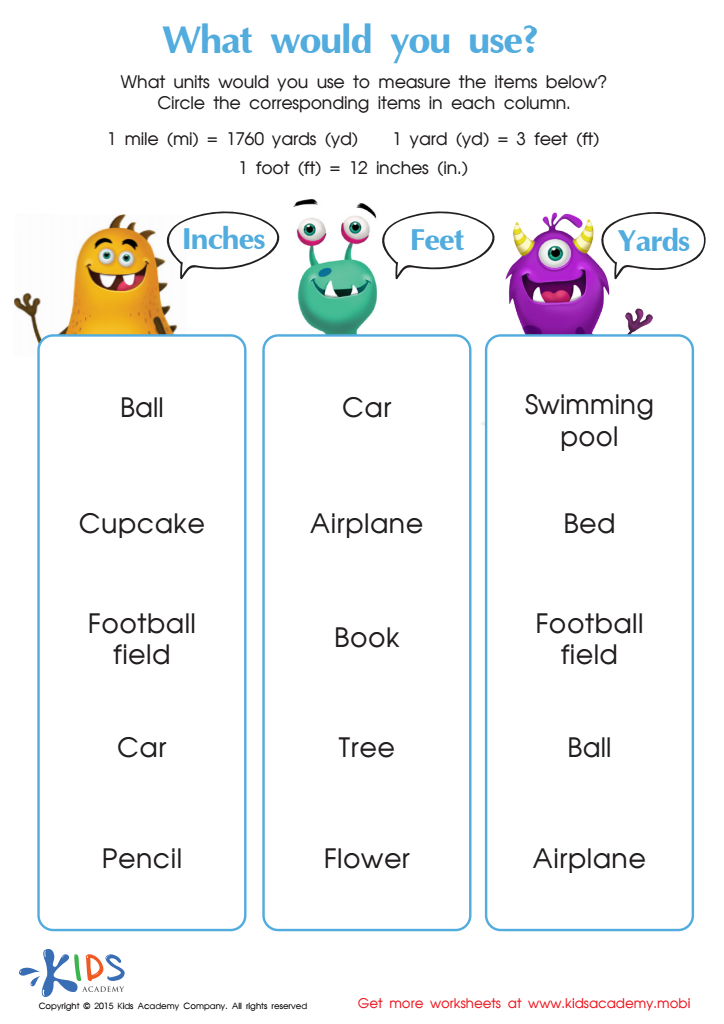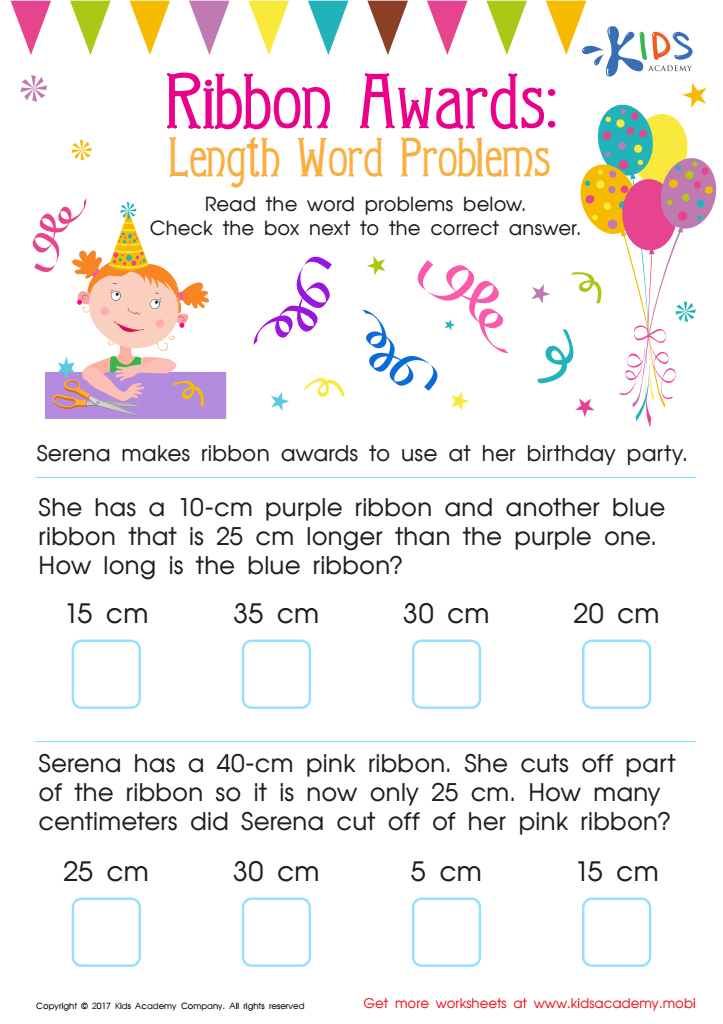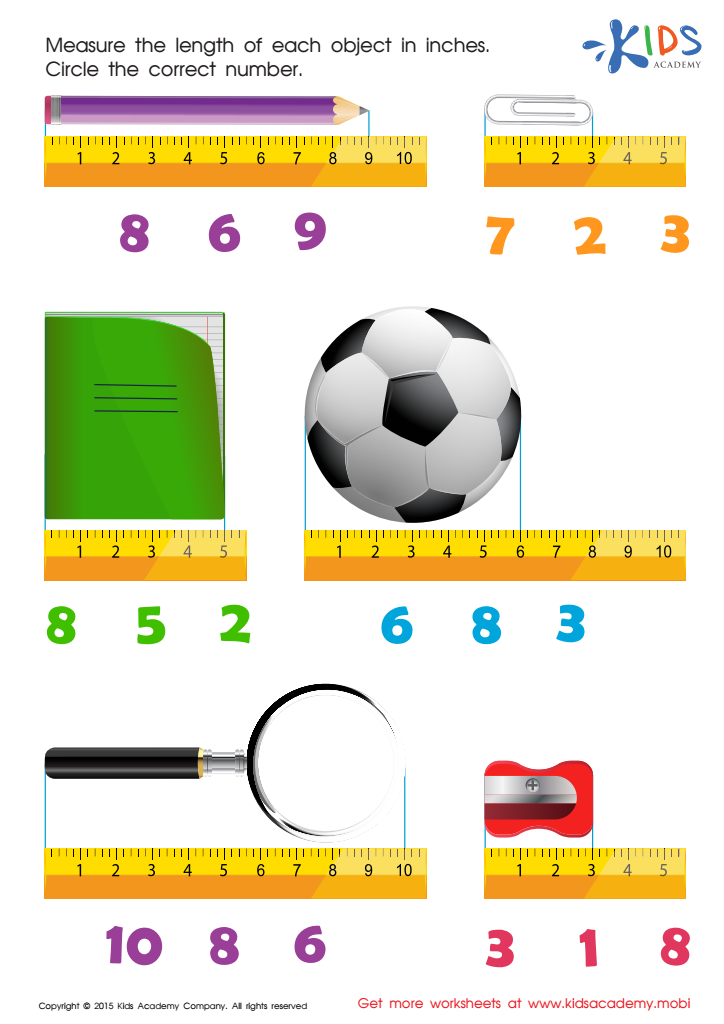Comparing lengths Measurement Worksheets for 4-Year-Olds
3 filtered results
-
From - To
Welcome to our Engaging Measuring Worksheets for 4-Year-Olds! Discover an array of fun and educational activities designed to introduce young learners to the concept of comparing lengths. Our colorful worksheets encourage children to measure, compare, and visualize various objects through hands-on experiences. These activities foster cognitive development by enhancing critical thinking and observational skills. Interactive tasks like sorting and matching length will keep children engaged while building foundational math skills. Perfect for both classroom and at-home learning, our worksheets provide an exciting way for kids to explore measurement concepts, making learning about length both fun and educational!


Learning about measuring objects in inches, feet and yards Worksheet


Length Word Problems Worksheet


Learning measuring objects in inches Worksheet
Comparing lengths is a foundational concept in early mathematics education, crucial for 4-year-olds' cognitive development. At this stage, children are naturally curious and explore their world through hands-on experiences. Engaging them in comparing lengths fosters critical thinking and problem-solving skills. When parents and teachers encourage activities like measuring distance with non-standard units (e.g., blocks or crayons), children begin to understand the concept of measurement, which enhances their spatial awareness.
Moreover, measuring and comparing lengths also aids in language development. As children describe objects as "long," "short," "tall," or "short," they expand their vocabulary and improve their ability to communicate ideas. These activities can encourage collaboration and social skills as children work together to measure and compare their findings.
Furthermore, learning measurement concepts at an early age lays a strong foundation for future mathematical skills. It supports number recognition, counting, and introduces concepts of data comparison, which will be essential in their academic journey. By actively participating in comparing lengths, children experience the joy of discovery, motivating them to explore and ask questions, ultimately fostering a lifelong love of learning. Parents and teachers should care deeply about this vital developmental milestone.
 Assign to My Students
Assign to My Students



















